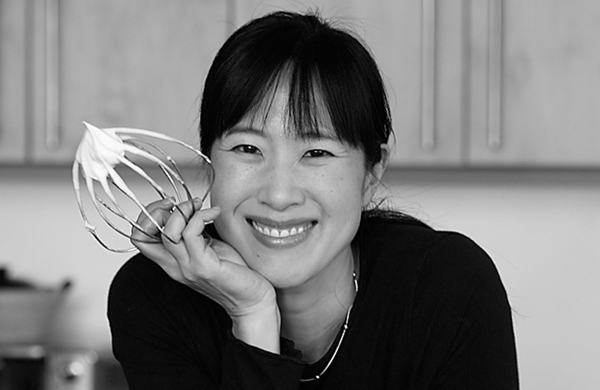
Most kitchen experts will be quick to tell you that there's a definitive difference between cooking and baking. Sure, recipes help when cooking, but you can do a lot of tinkering—add a dash of this, omit that—and, as long as the final result tastes good, you can consider the experiment a success. Baking, on the other hand, is a science, with far less room for error.
Luckily, a kitchen stocked with the right baking tools can help ease some of the stress that often torments first-time (and even some experienced) bakers. But if you're really new to the game, how do you know which tools are absolutely essential? You've probably got mixing bowls and cups already, but what about fancy scales and mixers?
 To help us better understand what baking tools and equipment are truly essentials, we turned to Joanne Chang, the renowned baker and sticky-bun-maker extraordinaire behind Boston's Flour Bakery + Cafe. Below, she outlined the five baking tools she can't bake without, along with her thoughts on why they're so important for home bakers.
To help us better understand what baking tools and equipment are truly essentials, we turned to Joanne Chang, the renowned baker and sticky-bun-maker extraordinaire behind Boston's Flour Bakery + Cafe. Below, she outlined the five baking tools she can't bake without, along with her thoughts on why they're so important for home bakers.

OK, so a smartphone isn't exactly a kitchen tool, but there's no denying that having a world of information at your fingertips is helpful when you hit a recipe snafu. Need to instantly find a substitution for buttermilk? Look it up. Need to convert a recipe from grams to cups? Let Siri do the math for you. A lot of recipe books have conversion tables inside of them, but in the time it takes you to save your page and flip to the index, you could have found the answer on your phone already.
Joanne also loves using a phone for inspiration. "These days, there's so much online to take advantage of," she says. "Recipes, pictures, ideas, information. I'm on mine searching around all the time."

"Why do I need to take my oven's temperature?" you might wonder. "Doesn't it automatically heat to the temperature I tell it to?" Well, yes and no.
The truth is, unless your oven is brand new or is regularly serviced and recalibrated, its temperature setting might not be accurate. And while ovens are often only off by a small amount (say 10–20 degrees), sometimes they can be off by as many as 100 degrees or more. If you're meticulous about following baking directions, but your baked goods never turn out right, an inaccurate oven temperature could be to blame. "Never bake until you know your oven is actually at the temperature it says it is at," Joanne warns.

"If you don't have one, get one now!" Joanne declares. A kitchen scale is especially helpful if you're following a recipe that uses metric measurements. "It will change your baking forever. You'll have fewer mistakes and greater success."
Weighing ingredients is often more accurate than measuring them by volume. For example, if you scoop a cup of flour, there are many factors, such as how hard you scoop and how much air gets trapped between each flour particle, that can effect how much flour ultimately gets into your recipe. When you weigh ingredients, you get consistent results each time. A gram is a gram is a gram, no matter how you scoop it.

If you've ever tried to frost a cake with a simple butter knife, you know how hard it can be to get a smooth, even surface. That's what makes offset spatulas such cool baking tools. "It's an extension of your hand," Joanne raves. "You'll use it to not only finish off cakes, but also to move things, pick up items, clean your station, and more."

Always by Joanne's side: her trusty KitchenAid mixer, a tried-and-true model she's owned since she started baking at home in 1992. "I can't imagine baking without it," she says. "Stand mixers allow you to do so much more in the kitchen: meringues, buttercreams, cake batters, bread doughs ... ." In addition to making tough jobs a lot easier (as anyone who has ever tried to whip cream by hand knows), they allow you to multitask since both your hands are free while the mixer runs.








